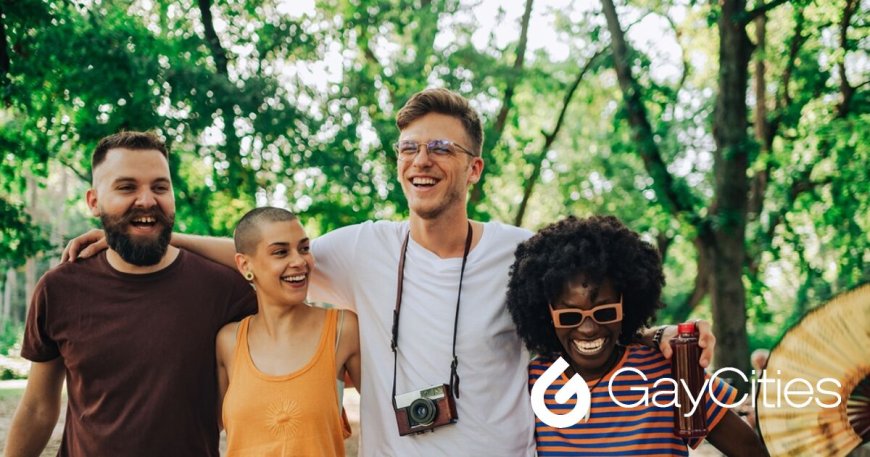This California queer retreat started as a hippie commune in the 70s
Salmon Creek Farm is a place to be slow, to take a deep breath and a step back, in both solitude and sociability.

Salmon Creek Farm is not your typical country retreat.
It was founded as a hippie commune in 1971 in California’s coastal redwood forest. Now, it’s a queer-owned and focused sanctuary; a “long-term living art project shaped by many hands, a sort of queered commune-farm-homestead,” according to the collective that owns and manages it.
The counterculture residents built seven cabins on the property by hand from scavenged materials. The self-sufficient homes are located across the sprawling 33-acre property. They have equipped kitchens, filtered drinking water, wood stoves, bedding/towels, hot outdoor showers, outhouses, and wifi.
Pack your bags, we’re going on an adventure
Subscribe to our weekly newsletter for the best LGBTQ+ travel guides, stories, and more.
Subscribe to our Newsletter today
Wood for the fires is sustainably harvested and scavenged from the forest. Residents and guests also tend to gardens, growing a bounty of fruit and vegetables that feed the commune. The property is strictly vegetarian. Water is collected from a spring on the land, filtered, and pumped to the top of the ridge, where it is stored, treated, and gravity-fed to all the cabins and gardens.
A few spots remain for a one- or two-week stay this year.
“This is an opportunity for curious folks to visit and support us, with proceeds going towards ongoing maintenance, repairs, and projects as we expand the offerings of our new non-profit Salmon Creek Arts. We will be scheduling special sessions for queers, and depending on demand, there will occasionally be a chef-in-residence,” they report.
“We aim to continually expand the views and voices informing the place and broaden the range of folks coming to the land, lowering barriers wherever possible to those who feel drawn to visit. As a queer owned and run space, it has a special sense of sanctuary for those who often don’t feel safe or welcome in rural spaces, especially BIPOC and LGBTQ+ folks.”

 Mark
Mark 
 (@salmon_creek_farm)
(@salmon_creek_farm)





